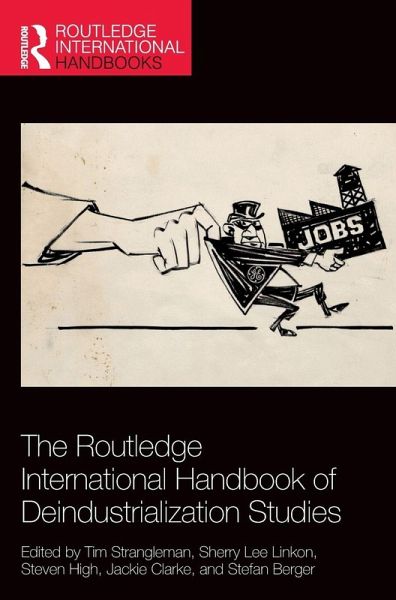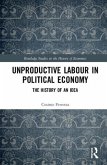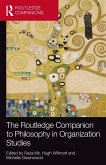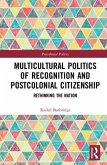The Routledge International Handbook of Deindustrialization Studies
Herausgeber: Clarke, Jackie; Strangleman, Tim; High, Steven; Berger, Stefan; Linkon, Sherry Lee
The Routledge International Handbook of Deindustrialization Studies
Herausgeber: Clarke, Jackie; Strangleman, Tim; High, Steven; Berger, Stefan; Linkon, Sherry Lee
- Gebundenes Buch
- Merkliste
- Auf die Merkliste
- Bewerten Bewerten
- Teilen
- Produkt teilen
- Produkterinnerung
- Produkterinnerung
The Routledge International Handbook of Deindustrialization Studies is a timely volume that provides an overview of this interdisciplinary field that emerged in response to the widespread decline of manufacturing and heavy industry from the 1980s onwards.
Andere Kunden interessierten sich auch für
![The Second International (Routledge Revivals) The Second International (Routledge Revivals)]() James JollThe Second International (Routledge Revivals)207,99 €
James JollThe Second International (Routledge Revivals)207,99 €![Discretion in the Welfare State Discretion in the Welfare State]() Anders MolanderDiscretion in the Welfare State79,99 €
Anders MolanderDiscretion in the Welfare State79,99 €![Unproductive Labour in Political Economy Unproductive Labour in Political Economy]() Cosimo PerrottaUnproductive Labour in Political Economy198,99 €
Cosimo PerrottaUnproductive Labour in Political Economy198,99 €![The Routledge Companion to Philosophy in Organization Studies The Routledge Companion to Philosophy in Organization Studies]() The Routledge Companion to Philosophy in Organization Studies307,99 €
The Routledge Companion to Philosophy in Organization Studies307,99 €![Governing International Labour Migration Governing International Labour Migration]() Christina Gabriel / Hélène Pellerin (eds.)Governing International Labour Migration207,99 €
Christina Gabriel / Hélène Pellerin (eds.)Governing International Labour Migration207,99 €![Multicultural Politics of Recognition and Postcolonial Citizenship Multicultural Politics of Recognition and Postcolonial Citizenship]() Rachel BusbridgeMulticultural Politics of Recognition and Postcolonial Citizenship197,99 €
Rachel BusbridgeMulticultural Politics of Recognition and Postcolonial Citizenship197,99 €![Economics of Socialism Economics of Socialism]() J. WilczynskiEconomics of Socialism111,99 €
J. WilczynskiEconomics of Socialism111,99 €-
-
-
The Routledge International Handbook of Deindustrialization Studies is a timely volume that provides an overview of this interdisciplinary field that emerged in response to the widespread decline of manufacturing and heavy industry from the 1980s onwards.
Hinweis: Dieser Artikel kann nur an eine deutsche Lieferadresse ausgeliefert werden.
Hinweis: Dieser Artikel kann nur an eine deutsche Lieferadresse ausgeliefert werden.
Produktdetails
- Produktdetails
- Verlag: Taylor & Francis Ltd
- Seitenzahl: 494
- Erscheinungstermin: 23. April 2025
- Englisch
- Abmessung: 246mm x 174mm
- ISBN-13: 9781032311524
- ISBN-10: 1032311525
- Artikelnr.: 71953176
- Herstellerkennzeichnung
- Libri GmbH
- Europaallee 1
- 36244 Bad Hersfeld
- gpsr@libri.de
- Verlag: Taylor & Francis Ltd
- Seitenzahl: 494
- Erscheinungstermin: 23. April 2025
- Englisch
- Abmessung: 246mm x 174mm
- ISBN-13: 9781032311524
- ISBN-10: 1032311525
- Artikelnr.: 71953176
- Herstellerkennzeichnung
- Libri GmbH
- Europaallee 1
- 36244 Bad Hersfeld
- gpsr@libri.de
Tim Strangleman is Emeritus Professor of Sociology at the University of Kent, UK, where he is also Director of the Work, Employment and Economic Life research cluster. He has researched and published widely on issues of work, class, community, and deindustrialization. He has carried out work in the coal mining, rail, health, ship building, engineering, papermaking, and brewing industries, drawing on oral history, archives, and visual material. He is the author of Work Identity at the End of the Line? Privatisation and Culture Change in the UK Railway Industry (2004) and Voices of Guinness: An Oral History of the Park Royal Brewery (2019). He is also the co-author of Work and Society: Sociological Approaches, Themes and Methods (2008) and the co-editor of The Routledge Handbook of Working-Class Studies (2021). He is also a co-investigator on the Deindustrialization and the Politics of Our Time (DéPOT) project. Sherry Lee Linkon is a Professor of English and American Studies at Georgetown University, USA, where, with campus and community colleagues, she developed the Steel Valley Voices digital archive of interviews and artifacts reflecting the experiences of 24 racial and ethnic groups in the Youngstown area. Her most recent book, The Half-Life of Deindustrialization (2018), examines early twenty-first century working-class narratives reflecting the continuing effects of economic restructuring in the US. With John Russo, she also co-authored Steeltown USA: Work and Memory in Youngstown (2002) and co-edited New Working Class Studies (2005). Her current research examines literature and photography reflecting Black women's perspectives on the legacies of deindustrialization. She is also a co-investigator on the Deindustrialization and the Politics of Our Time (DéPOT) project. Steven High is Professor of History at Concordia University, Canada and Principal Investigator of the Deindustrialization and the Politics of Our Time (DéPOT) project. He has published extensively on the history and politics of deindustrialization in the US and Canada. His book, Industrial Sunset: The Making of North America's Rust Belt (2003), won prizes from the American Historical Association and other organizations. He is also the author of Corporate Wasteland: The Landscape and Memory of Deindustrialization (with photographer David Lewis, 2007) and One Job Town: Work, Memory and Betrayal in Northern Ontario (2018), and the co-editor of The Deindustrialized World: Confronting Ruination in Postindustrial Places (2017). Jackie Clarke is Senior Lecturer in French Studies at the University of Glasgow, UK, where she is also a member of the Centre for Gender History. She is also a co-investigator on the Deindustrialization and the Politics of Our Time (DéPOT) project. Her research explores questions about work, consumption, deindustrialization, and gender in contemporary France. She is the co-editor of a special issue on gender and deindustrialization in International Labor and Working Class Studies (2024). Stefan Berger is Professor of Social History and Director of the Institute for Social Movements at Ruhr-Universität Bochum, Germany. He is also Executive Chair of the Foundation History of the Ruhr and an Honorary Professor at Cardiff University, UK. He is the author of History and Identity: How Historical Theory Shapes Historical Practice (2022) and editor of Constructing Industrial Pasts: Heritage, Historical Culture and Identity in Regions Undergoing Structural Economic Transformation (2020). He is a co-investigator on the Deindustrialization and the Politics of Our Time (DéPOT) project, an international partnership project funded by the Canadian Social Sciences and Humanities Research Council (SSHRC).
Introduction
Part I: Concepts and Theories
Introduction: Concepts and Theories
1. Theorizing Deindustrialization
2. Reflections on the Half-Life
3. Deindustrialization as Global History
4. Moral Economy and Industrial Culture
5. Racializing Deindustrialization Studies
Part II: Political Economy of Deindustrialization
Introduction: Political Economy of Deindustrialization
6. Uneven Development, the World System, and Lumpenization: Bringing
Marxian Political Economy Back into Deindustrialization Studies
7. The Racial Dimensions of (De)industrialization
8. The Region as an Analytical Framework for Deindustrialization Studies:
Regional Economic Development in Atlantic Canada
9. Deindustrialization and Nationhood
10. Challenging and Politicizing Deindustrialization?
11. Anticipating Just Transitions: Ecological Crisis and Future
Deindustrialization
Part III: Communities, Identities, Affects
Introduction: Communities, Identities, Affects
12. Community, Affect and Deindustrialization
13. Deindustrialization and Racialized Communities: A Historical
Perspective
14. Class, Gender, and Industrial Structures of Feeling after Socialism:
Post-industrial Lives in the Post-Yugoslav Space
15. Metallic Vitalities: Smog, Steel and Stigma in a De-industrial Town
16. Deindustrialization, Leisure & Feeling Communities
17. "Dad, why did you bring me to a gay steel mill?" Notes Towards a Queer
Study of Deindustrialization
Part IV: The Critical Cultural Work of Representations
Introduction: The Critical Cultural Work of Representations
18. Black Spatial Agency and Cultural Justice: Race, Ruins, and
Gentrification in Detroit
19. Uncovering the Discovery of the Ruhr: Representations of
Deindustrialization in Germany's Former Industrial Heartland
20. Making the Human Wreckage Visible: Deindustrialization in Kate Beaton's
Ducks
21. The Sound of Deindustrialization
22. Garment Workers Through the Lens of Loss: The Long Shadow of
Deindustrialization in South Asian Films
Part V
Introduction: Memories, Memorialization, and the Heritage of
Deindustrialization
23. Industrial Memory Landscapes in Urban Planning Processes - Comparative
Perspectives from Germany, Luxembourg, and France
24. Memorialization of Industrial Pasts in Post-Socialist Countries
25. The Memorialization of Class in Industrial Heritage Initiatives
26. Uncovering Gender Tracks: Erasure and Railway Industrial Heritage
Initiatives Across the World
27. Industrial Heritage from the South: Decolonial Approaches to the Social
Construction of Heritage and Preservation Practices
Conclusion
Part I: Concepts and Theories
Introduction: Concepts and Theories
1. Theorizing Deindustrialization
2. Reflections on the Half-Life
3. Deindustrialization as Global History
4. Moral Economy and Industrial Culture
5. Racializing Deindustrialization Studies
Part II: Political Economy of Deindustrialization
Introduction: Political Economy of Deindustrialization
6. Uneven Development, the World System, and Lumpenization: Bringing
Marxian Political Economy Back into Deindustrialization Studies
7. The Racial Dimensions of (De)industrialization
8. The Region as an Analytical Framework for Deindustrialization Studies:
Regional Economic Development in Atlantic Canada
9. Deindustrialization and Nationhood
10. Challenging and Politicizing Deindustrialization?
11. Anticipating Just Transitions: Ecological Crisis and Future
Deindustrialization
Part III: Communities, Identities, Affects
Introduction: Communities, Identities, Affects
12. Community, Affect and Deindustrialization
13. Deindustrialization and Racialized Communities: A Historical
Perspective
14. Class, Gender, and Industrial Structures of Feeling after Socialism:
Post-industrial Lives in the Post-Yugoslav Space
15. Metallic Vitalities: Smog, Steel and Stigma in a De-industrial Town
16. Deindustrialization, Leisure & Feeling Communities
17. "Dad, why did you bring me to a gay steel mill?" Notes Towards a Queer
Study of Deindustrialization
Part IV: The Critical Cultural Work of Representations
Introduction: The Critical Cultural Work of Representations
18. Black Spatial Agency and Cultural Justice: Race, Ruins, and
Gentrification in Detroit
19. Uncovering the Discovery of the Ruhr: Representations of
Deindustrialization in Germany's Former Industrial Heartland
20. Making the Human Wreckage Visible: Deindustrialization in Kate Beaton's
Ducks
21. The Sound of Deindustrialization
22. Garment Workers Through the Lens of Loss: The Long Shadow of
Deindustrialization in South Asian Films
Part V
Introduction: Memories, Memorialization, and the Heritage of
Deindustrialization
23. Industrial Memory Landscapes in Urban Planning Processes - Comparative
Perspectives from Germany, Luxembourg, and France
24. Memorialization of Industrial Pasts in Post-Socialist Countries
25. The Memorialization of Class in Industrial Heritage Initiatives
26. Uncovering Gender Tracks: Erasure and Railway Industrial Heritage
Initiatives Across the World
27. Industrial Heritage from the South: Decolonial Approaches to the Social
Construction of Heritage and Preservation Practices
Conclusion
Introduction
Part I: Concepts and Theories
Introduction: Concepts and Theories
1. Theorizing Deindustrialization
2. Reflections on the Half-Life
3. Deindustrialization as Global History
4. Moral Economy and Industrial Culture
5. Racializing Deindustrialization Studies
Part II: Political Economy of Deindustrialization
Introduction: Political Economy of Deindustrialization
6. Uneven Development, the World System, and Lumpenization: Bringing
Marxian Political Economy Back into Deindustrialization Studies
7. The Racial Dimensions of (De)industrialization
8. The Region as an Analytical Framework for Deindustrialization Studies:
Regional Economic Development in Atlantic Canada
9. Deindustrialization and Nationhood
10. Challenging and Politicizing Deindustrialization?
11. Anticipating Just Transitions: Ecological Crisis and Future
Deindustrialization
Part III: Communities, Identities, Affects
Introduction: Communities, Identities, Affects
12. Community, Affect and Deindustrialization
13. Deindustrialization and Racialized Communities: A Historical
Perspective
14. Class, Gender, and Industrial Structures of Feeling after Socialism:
Post-industrial Lives in the Post-Yugoslav Space
15. Metallic Vitalities: Smog, Steel and Stigma in a De-industrial Town
16. Deindustrialization, Leisure & Feeling Communities
17. "Dad, why did you bring me to a gay steel mill?" Notes Towards a Queer
Study of Deindustrialization
Part IV: The Critical Cultural Work of Representations
Introduction: The Critical Cultural Work of Representations
18. Black Spatial Agency and Cultural Justice: Race, Ruins, and
Gentrification in Detroit
19. Uncovering the Discovery of the Ruhr: Representations of
Deindustrialization in Germany's Former Industrial Heartland
20. Making the Human Wreckage Visible: Deindustrialization in Kate Beaton's
Ducks
21. The Sound of Deindustrialization
22. Garment Workers Through the Lens of Loss: The Long Shadow of
Deindustrialization in South Asian Films
Part V
Introduction: Memories, Memorialization, and the Heritage of
Deindustrialization
23. Industrial Memory Landscapes in Urban Planning Processes - Comparative
Perspectives from Germany, Luxembourg, and France
24. Memorialization of Industrial Pasts in Post-Socialist Countries
25. The Memorialization of Class in Industrial Heritage Initiatives
26. Uncovering Gender Tracks: Erasure and Railway Industrial Heritage
Initiatives Across the World
27. Industrial Heritage from the South: Decolonial Approaches to the Social
Construction of Heritage and Preservation Practices
Conclusion
Part I: Concepts and Theories
Introduction: Concepts and Theories
1. Theorizing Deindustrialization
2. Reflections on the Half-Life
3. Deindustrialization as Global History
4. Moral Economy and Industrial Culture
5. Racializing Deindustrialization Studies
Part II: Political Economy of Deindustrialization
Introduction: Political Economy of Deindustrialization
6. Uneven Development, the World System, and Lumpenization: Bringing
Marxian Political Economy Back into Deindustrialization Studies
7. The Racial Dimensions of (De)industrialization
8. The Region as an Analytical Framework for Deindustrialization Studies:
Regional Economic Development in Atlantic Canada
9. Deindustrialization and Nationhood
10. Challenging and Politicizing Deindustrialization?
11. Anticipating Just Transitions: Ecological Crisis and Future
Deindustrialization
Part III: Communities, Identities, Affects
Introduction: Communities, Identities, Affects
12. Community, Affect and Deindustrialization
13. Deindustrialization and Racialized Communities: A Historical
Perspective
14. Class, Gender, and Industrial Structures of Feeling after Socialism:
Post-industrial Lives in the Post-Yugoslav Space
15. Metallic Vitalities: Smog, Steel and Stigma in a De-industrial Town
16. Deindustrialization, Leisure & Feeling Communities
17. "Dad, why did you bring me to a gay steel mill?" Notes Towards a Queer
Study of Deindustrialization
Part IV: The Critical Cultural Work of Representations
Introduction: The Critical Cultural Work of Representations
18. Black Spatial Agency and Cultural Justice: Race, Ruins, and
Gentrification in Detroit
19. Uncovering the Discovery of the Ruhr: Representations of
Deindustrialization in Germany's Former Industrial Heartland
20. Making the Human Wreckage Visible: Deindustrialization in Kate Beaton's
Ducks
21. The Sound of Deindustrialization
22. Garment Workers Through the Lens of Loss: The Long Shadow of
Deindustrialization in South Asian Films
Part V
Introduction: Memories, Memorialization, and the Heritage of
Deindustrialization
23. Industrial Memory Landscapes in Urban Planning Processes - Comparative
Perspectives from Germany, Luxembourg, and France
24. Memorialization of Industrial Pasts in Post-Socialist Countries
25. The Memorialization of Class in Industrial Heritage Initiatives
26. Uncovering Gender Tracks: Erasure and Railway Industrial Heritage
Initiatives Across the World
27. Industrial Heritage from the South: Decolonial Approaches to the Social
Construction of Heritage and Preservation Practices
Conclusion








